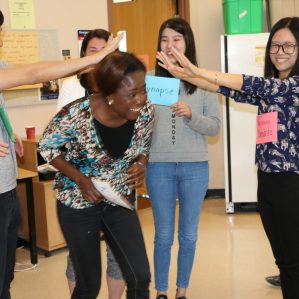The Faculty of Education and Social Work (EDSW) is offering its first-ever special topics course in the emerging field of educational neuroscience.
The course, Mind, brain, and education: an introduction to educational neuroscience, blends the fields of education, psychology, and neuroscience to provide a theoretical and philosophical framework of the mind-body connection. The course will be offered to students in the Master of Education (MEd) program.
“This course gives us information about how the brain functions and as someone in the education field, this is very important,” said Stella Ugwu, an international MEd student.
“The brain is the keeper of information and with the help of this class I hope to better understand how the brain affects behavior while providing applications to deal with such.”
Not only will students examine the theoretical frameworks of brain structures, functions and plasticity but also prominent philosophical and ethical issues in relation to educational neuroscience and its implications for learning and development. Of prime importance is the critical evaluation of neuroscientific research and its application to educational policy and practice.

International MEd student Stella Ugwu participates in a representation of neural activity.
“Though most of the students in the course are focusing on leadership as their area of study, it is still important for them to understand this emerging field,” said Kim Calder Stegemann, EDSW faculty member.
What makes the course special is the convergence of multiple disciplines. Guest speakers include Nan Stevens of education on the topic of sensory processing, Denise Weisgerber of psychology to talk about sleep and Joanne Jones of nursing to discuss the effects of medications and drugs on brain physiology and outward behaviours.
According to Stegemann, some of the most interesting topics for students thus far include learning about the social brain and the necessity of secure relationships for brain development as well as learning about neuro-myths.
“As a teacher, I will be able to apply what I have learned right away in the classroom to children with learning disabilities such as ADHD and anxiety,” said Brett Wasylik. “This course will give me the tools to consider what students are going through and how to best accommodate them.”

